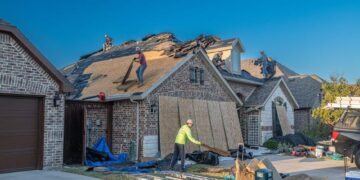Table of Contents
Introduction: Beyond the Price Tag
For many Chicago residents, the annual insurance renewal process has become a source of dread.
The arrival of a policy statement often brings a sharp, sometimes inexplicable, increase in premiums, fostering a sense of being penalized by forces beyond one’s control.
This experience—paying more for what feels like the same protection—can lead consumers to treat insurance as a simple commodity, a necessary evil where the only goal is to find the lowest possible price.
This approach, however, is a critical mistake in a market as complex and fraught with risk as Chicago.
The journey from a frustrated, passive “buyer” to an empowered, strategic “architect” of one’s own financial protection begins with a fundamental shift in perspective.
It requires moving beyond the price tag to understand the unique environmental pressures that shape insurance costs in the city.
This report adopts a new paradigm for evaluating an insurer like Progressive: viewing the Chicago area as a uniquely challenging “job site” and an insurance policy not as a single, off-the-shelf product, but as a custom “toolkit” that must be expertly assembled to withstand the specific hazards of that site.
By surveying the job site’s risks, examining the tools available, and learning to master the levers of cost and coverage, a Chicago consumer can build a resilient and cost-effective structure of protection.
Part I: Surveying the Job Site: Deconstructing Chicago’s Unique Risk Profile
Insurance premiums are not arbitrary; they are a mathematical reflection of risk.
In Chicago, the cost of coverage is a direct response to a concentrated and multifaceted risk environment that is among the most challenging in the nation.
A thorough survey of this “job site” is the essential foundation upon which any sound insurance decision must be built.
The Urban Gauntlet: Auto Theft and City Driving Hazards
Chicago presents a severe and persistent risk for vehicle owners.
The city’s auto theft rates have surged to record levels, creating an environment where comprehensive insurance coverage is not a luxury, but a necessity.
In 2023, Chicago experienced a record high for car thefts, with a rate of nearly 9 vehicle thefts per 1,000 residents—a figure that triples the national average.1
This surge was significantly fueled by the targeting of specific Hyundai and Kia models, which accounted for more than half of all vehicles stolen in the city.1
While efforts to curb these thefts have shown some effect, data from 2024 indicates a troubling shift, with thieves now increasingly targeting higher-end vehicles like Lexus and Jeep models, a trend that keeps the overall financial risk for insurers exceptionally high.2
On a statewide level, Illinois ranked 5th in the nation for motor vehicle thefts in 2023, underscoring the regional severity of the problem.3
This data reveals the existence of an implicit “theft tax” embedded within every Chicago auto policy.
Because insurance pricing is fundamentally based on the statistical probability of a claim, the dramatically higher likelihood of a vehicle being stolen in Chicago means that the comprehensive portion of any policy is mathematically more expensive.
For a Chicago driver, forgoing comprehensive coverage is an untenable risk.
Furthermore, the high value of targeted vehicles means that the state’s minimum property damage liability requirement of $20,000 is dangerously inadequate.4
An at-fault accident involving a stolen high-value SUV could easily result in damages far exceeding this minimum, leaving the driver personally exposed to significant financial liability.
This elevates the importance of securing higher liability limits and robust Uninsured/Underinsured Motorist (UM/UIM) coverage to protect against the city’s unique automotive risks.6
The Turbulent Skies: Severe Convective Storms and Homeowner Risk
Beyond the risks on its streets, Chicago faces an equally potent threat from the sky.
A landmark 2025 analysis by CoreLogic identified the Chicago metropolitan area as having the highest concentration of risk in the entire United States for all three categories of severe convective storms (SCS): hail, tornadoes, and straight-line winds.7
This is not a distant, abstract threat; it is a clear and present danger to property owners.
According to the report, approximately 3 million homes in the Chicago area are at risk for each type of severe weather event, representing a staggering potential reconstruction cost.7
This finding is corroborated by long-term data from the National Oceanic and Atmospheric Administration (NOAA), which shows that Illinois was impacted by 92 separate billion-dollar severe storm events between 1980 and 2024.
The frequency of these events has accelerated dramatically, with the annual average rising from 2.8 events over the entire period to 7.8 events in the last five years (2020–2024).11
This escalating weather volatility is a primary driver of rising homeowners’ insurance rates.
Major insurers, including State Farm and Allstate, have publicly cited the increased intensity of Midwestern storms and soaring repair costs as justification for significant premium hikes in Illinois.12
In response to these mounting losses, a new trend is emerging across the Midwest: insurers are increasingly implementing separate, and often much higher, deductibles specifically for wind and hail damage.14
The convergence of these two distinct and severe risk profiles—extreme auto theft and extreme weather—creates a compounding effect that directly impacts consumers, particularly those who bundle their policies.
While bundling auto and home insurance is a common strategy for earning a discount, insurers in Chicago are simultaneously facing abnormally high loss potential on both lines of business.15
An insurer’s profitability is assessed across its entire regional portfolio.
Therefore, a bad hail season that leads to a spike in home claims can exert upward pressure on the auto portion of a bundled policy, just as a surge in carjackings can influence the home insurance rates, as the company adjusts its pricing to maintain financial stability across its entire Chicago book of business.
This dynamic helps explain the widespread frustration voiced by consumers who, despite having no personal claims, face massive premium increases at renewal.16
Part II: Forging the Toolkit: A Granular Breakdown of Progressive’s Coverage
Understanding Chicago’s risks is the first step.
The second is selecting the right tools to mitigate them.
This requires a granular analysis of an insurer’s offerings, evaluating each coverage option not as a generic feature but as a specific instrument designed for the challenges of the Chicago job site.
Progressive, in particular, offers a broad and varied toolkit.
Auto Insurance: Building Your Shield
Progressive provides a comprehensive suite of auto insurance products in Illinois, extending well beyond the state-mandated minimums for liability coverage.4
For the strategic Chicago consumer, the true value lies in the optional coverages that address the city’s specific perils.
These include crucial protections like Gap Insurance, which covers the difference between a car’s actual cash value and the amount still owed on a loan if it’s totaled or stolen—a vital safeguard in a high-theft city.
Other key options include Custom Parts and Equipment (CPE) coverage, which protects aftermarket additions that are often targets for thieves, and Rideshare coverage for drivers in the gig economy.21
A national comparison of the top four insurers reveals that Progressive offers a broader array of these critical optional coverages than its main competitors.
A 2025 NerdWallet analysis found that Progressive offered six of eight tracked optional coverages, compared to five for Allstate, four for GEICO, and only two for State Farm.21
This is a significant distinction.
State Farm, a major force in the Illinois market, notably lacks options for Gap Insurance and Accident Forgiveness.21
For a Chicago driver with a new vehicle and a car loan, the inability to purchase Gap coverage from a carrier like State Farm represents a serious gap in financial protection.
This wider “toolkit” gives Progressive a distinct strategic advantage, positioning it as a potentially superior choice for consumers who understand the nuanced risks of the city and want to construct a more complete and resilient policy.
Home & Property Insurance: Fortifying Your Castle
Progressive’s property insurance offerings in Illinois, for both homeowners and renters, include the standard protections for the dwelling, personal belongings, and liability.22
However, given Chicago’s specific environmental risks, certain optional endorsements become critically important.
Chief among these is
Water Back-up coverage.
This endorsement provides protection against damage from sump pump failures or sewer back-ups, a frequent and costly problem in a city known for its aging infrastructure and susceptibility to heavy rainfall.22
A crucial and often misunderstood aspect of Progressive’s homeowners insurance is its business model.
Progressive frequently acts as an insurance agency, offering policies that are actually underwritten by third-party companies, most commonly Homesite.
In addition, they offer policies underwritten by their own company, “Progressive Home” (formerly known as ASI).25
This distinction is not merely administrative; it has profound implications for the customer, especially during a claim.
Consumer forums are replete with stories from customers who were surprised to learn their “Progressive” policy was actually with Homesite, leading to confusion and frustration.16
This structure creates what can be described as an “underwriter lottery” for the consumer.
The quality of the claims experience can vary dramatically depending on which company is actually backing the policy.
According to J.D. Power’s 2025 U.S. Property Claims Satisfaction Study, “Progressive Home” earned a score of 697 out of 1,000, placing it comfortably above the industry average of 682.
In stark contrast, Homesite received a dismal score of 592, ranking it second to last among all carriers surveyed.26
A consumer who bundles their highly-rated Progressive auto policy with a low-rated Homesite home policy may be completely unaware of this quality disparity until they are in the vulnerable position of filing a major claim.
Therefore, it is absolutely essential for a Chicago consumer to ask a Progressive agent or representative
specifically which company is underwriting their homeowners policy.
Opting for a policy directly underwritten by “Progressive Home” may lead to a significantly better claims experience, a factor that could easily justify a slightly higher premium.
Table: Critical Coverage Checklist for Chicago Residents
To translate these abstract risks into concrete policy decisions, the following checklist provides a practical tool for building a robust insurance portfolio in Chicago.
It contrasts the basic, state-mandated minimums with the recommended levels of protection needed to be truly secure in this high-risk environment.
| Coverage Type | Basic Protection (State Minimum) | Recommended Chicago Protection |
| Auto: Bodily Injury Liability | $25,000 per person / $50,000 per accident 4 | $100,000 per person / $300,000 per accident or higher. The potential for multi-vehicle accidents and severe injuries in dense city traffic makes minimums insufficient to protect personal assets from a lawsuit. |
| Auto: Property Damage Liability | $20,000 per accident 4 | $100,000 or higher. The high value of many vehicles on Chicago roads means a single at-fault accident can easily exceed the state minimum, leaving you to pay the difference out-of-pocket. |
| Auto: Uninsured/Underinsured Motorist (UM/UIM) | $25,000 per person / $50,000 per accident 6 | Match your Bodily Injury Liability limits. This protects you and your passengers if you are hit by a driver with little or no insurance, a significant risk in any major urban area. |
| Auto: Comprehensive Coverage | Optional | Essential. With one of the highest auto theft rates in the nation, this coverage is non-negotiable in Chicago. It is the only coverage that protects against theft. |
| Auto: Collision Coverage | Optional | Highly Recommended. Protects your vehicle in an at-fault accident. Given the density of traffic and challenging road conditions, the risk of a collision is elevated. |
| Home/Renters: Water Back-up | Not included in standard policies 22 | Essential. Add this endorsement to protect against damage from failed sump pumps and sewer back-ups, a common and costly issue in Chicago’s climate and with its infrastructure. |
| Home: Wind/Hail Deductible | Typically the standard policy deductible. | Be aware of separate, higher percentage-based deductibles.14 Understand this amount and ensure you have adequate savings to cover it, as Chicago is a hotspot for severe wind and hail. |
Part III: Mastering the Levers: A Strategic Guide to Pricing and Savings
For most consumers, the bottom line is cost.
Navigating the high-premium landscape of Chicago requires a strategic approach to pricing and discounts.
This involves understanding the market, leveraging every available savings opportunity, and making informed decisions about programs that promise discounts but may carry hidden risks.
The Chicago Premium: A Rate Analysis
The “Chicago tax” on car insurance is substantial and quantifiable.
The average annual premium for full coverage in Chicago is approximately $3,644, which is over $1,000 higher than the Illinois state average of $2,601.27
This premium reflects the heightened risks of theft, accidents, and litigation inherent in a dense urban environment.
However, within this expensive market, significant variations exist between carriers.
A 2025 NerdWallet analysis of Chicago rates identified Progressive as the most affordable major insurer for many driver profiles.
For a 35-year-old good driver, Progressive’s median annual rate was $2,214, substantially lower than key competitors like State Farm ($3,053), GEICO ($3,186), and Allstate ($3,941).21
This price advantage becomes even more pronounced for drivers with blemishes on their record, positioning Progressive as a highly competitive option in the Chicago market.
Table: Chicago Auto Insurance Rate Showdown (Progressive vs. Key Competitors)
The following table synthesizes rate data to provide a clear, side-by-side comparison of median annual full coverage premiums for various driver profiles in Chicago.
| Driver Profile | Progressive | State Farm | GEICO | Allstate |
| Good Driver | $2,214 | $3,053 | $3,186 | $3,941 |
| At-Fault Accident | $3,219 | $3,873 | $5,052 | $6,203 |
| DUI | $2,763 | $4,477 | N/A | $5,900 |
Source: NerdWallet analysis of 2025 Chicago rates.21
Rates are median annual premiums for full coverage.
This data clearly visualizes Progressive’s significant price advantage in the city.
For a driver with a DUI, for example, the difference in premiums between Progressive and its competitors can amount to thousands of dollars per year, making it a critical factor in their choice of insurer.
The Discount Arsenal: Maximizing Your Savings
Beyond its competitive base rates, Progressive offers a wide array of discounts that can further reduce premiums.
These include standard savings for bundling multiple policies (e.g., auto and renters), insuring multiple cars, being a homeowner, and maintaining good grades as a student.15
Additional discounts are available for administrative efficiencies, such as quoting and signing online, opting for paperless billing, paying the policy in full, or setting up automatic payments.15
Crucially, Progressive offers a discount in Illinois that directly addresses one of the city’s most significant risks: an “active anti-theft device” discount.28
This is a powerful, targeted lever for Chicago drivers.
While many insurers offer such discounts nationally, its specific mention for Illinois highlights its relevance to the local risk pool.29
Installing a qualifying device, such as a GPS tracker or a vehicle recovery system like LoJack, serves a dual purpose: it provides a real-world deterrent against theft and simultaneously unlocks a tangible premium reduction.
For the strategic consumer, this represents a “two-for-one” victory and should be a key point of discussion with an agent when securing a quote.
The Snapshot Gamble: A Deep Dive into Progressive’s Telematics
Progressive’s Snapshot program is a form of usage-based insurance (UBI) or telematics that promises to personalize rates based on actual driving behavior.
The program, which uses a smartphone app or a plug-in device, monitors factors like hard braking, rapid acceleration, total mileage, and time of day.30
While the company advertises an average savings of $322 per year for those who earn a discount, it also explicitly states that high-risk driving can lead to a rate
increase.30
While this may sound appealing, a wealth of anecdotal evidence suggests that the program’s algorithm may be ill-suited for the realities of urban driving.
Numerous users, particularly those in cities, report that the system is overly sensitive and penalizes them for necessary defensive maneuvers, such as braking suddenly to avoid a pedestrian or navigating stop-and-go traffic.32
One driver noted that the fear of triggering a “hard brake” event made them drive more dangerously by accelerating through yellow lights.33
The program’s logic does not appear to differentiate between aggressive driving on an open road and the unavoidable, abrupt actions required to navigate a chaotic city environment safely.
Consequently, for the typical Chicago driver, the Snapshot program may represent a significant gamble.
The inherent nature of city driving could easily be misinterpreted by the algorithm as “risky,” potentially leading to a premium increase rather than the promised savings.
Part IV: The Moment of Truth: Performance Under Pressure
The ultimate measure of an insurance policy is not its price, but its performance when a claim is filed.
A comprehensive evaluation of Progressive requires looking beyond marketing and premiums to analyze its track record in these critical moments.
This involves synthesizing formal industry ratings with the unfiltered, real-world experiences of its customers.
Industry Benchmarks: J.D. Power and Formal Complaint Data
Formal industry studies present a nuanced picture of Progressive’s claims satisfaction.
In the highly competitive auto insurance sector, J.D. Power’s annual satisfaction studies consistently show Progressive’s scores lagging behind major competitors like State Farm and GEICO across most U.S. regions.35
This suggests that while Progressive competes aggressively on price, its claims service is not generally perceived as industry-leading by its auto customers.
The story is different for property claims.
J.D. Power’s 2025 Property Claims Satisfaction Study gives “Progressive Home” an above-average score of 697 (versus the industry average of 682).
This indicates a solid performance for the policies it underwrites directly.
However, as noted previously, its common partner, Homesite, scores a very poor 592.26
This data reinforces the importance of identifying the specific underwriter for a homeowners policy.
This discrepancy between auto and home satisfaction scores aligns with market share data from the Illinois Department of Insurance.
In 2024, various Progressive entities collectively held a significant share of the Illinois private passenger auto market—over 13% for both liability and physical damage, making it a top-tier player.
In contrast, its market share for homeowners insurance was less than 0.1%.37
This suggests that Progressive’s dominant position in the Chicago auto market is driven primarily by its aggressive pricing strategy, not by a reputation for superior claims service.
Consumers are choosing Progressive for the immediate, tangible benefit of cost savings, potentially accepting a trade-off in service quality.
The strong performance of its niche homeowners product demonstrates the company’s capability to deliver good service, but it is clearly not the main competitive lever in its auto business.
Voices from the Trenches: A Synthesis of Customer Reviews
Customer feedback from online forums and the Better Business Bureau is highly polarized, reflecting the complex nature of insurance experiences.27
Positive reviews frequently praise Progressive for its competitive rates, user-friendly website and mobile app, and efficient handling of straightforward claims, such as glass replacement or minor fender-benders.39
These customers often highlight the ease of making policy changes and the smoothness of the initial claims filing process.
Conversely, negative reviews are often passionate and detailed.
Common themes include significant difficulties with more complex claims, particularly those involving bodily injury.
Customers report frustrating communication, unexpected and steep rate hikes even after years of loyalty with no claims, and a claims process that feels adversarial.40
Many of the most severe complaints arise when customers are dealing with third-party underwriters for home claims or when they feel the settlement offer for a totaled vehicle is unfairly low.38
This wide divergence in reported experiences underscores that while Progressive’s systems may be efficient for routine issues, navigating more complicated claims can be a significant challenge for some policyholders.
Part V: The Architect of Your Policy: Choosing Your Purchase Path
The final strategic decision in assembling your insurance toolkit is how to purchase it.
The choice between buying a policy directly from the company online or working with an independent agent is not merely a matter of preference; it has significant consequences for the adequacy of your coverage, the price you pay, and the support you receive during a claim.
The Direct Route: The Pros and Cons of Buying Online
Purchasing insurance directly from Progressive’s website offers undeniable advantages in speed and convenience.
The process is available 24/7, allows for quick quote comparisons, and often comes with a small discount for completing the transaction online.15
This path gives the consumer a sense of direct control over the process.
However, this control comes with significant responsibility.
The direct route places the entire burden of research, risk assessment, and coverage selection on the consumer.
In a market as complex as Chicago, a consumer without deep insurance knowledge may easily overlook a critical optional coverage, select inadequate liability limits, or fail to understand the fine print regarding deductibles or underwriting partners, leaving themselves dangerously exposed.42
The Agent Advantage: Leveraging Local Expertise
Progressive maintains a vast network of over 40,000 independent insurance agents across the country.44
Working with an agent offers three primary benefits: expert advice, personalized service, and advocacy.
An independent agent’s role is to act as a trusted advisor.
They can shop multiple carriers—including Progressive—to find the best combination of coverage and price.46
More importantly, they can provide crucial context and clarification, explaining the real-world implications of different liability limits or the critical distinction between a “Progressive Home” policy and one underwritten by Homesite.
In the event of a claim, the agent becomes the policyholder’s advocate, helping to navigate the process, communicate with the claims department, and “cut through red tape” to ensure a fair and timely resolution.43
While this process may take more time than a quick online purchase, the value of expert guidance in a high-risk environment can be immeasurable.
Table: Decision Matrix – Direct vs. Independent Agent
This matrix provides a framework to help you decide which purchasing path best aligns with your personal needs and priorities.
| Priority | Buying Direct | Using an Independent Agent |
| Speed and Convenience | Excellent: Fastest way to get a quote and a policy. 24/7 access. | Fair: Requires scheduling time to speak with an agent. Process is slower. |
| Expert Advice & Guidance | Poor: Relies entirely on self-research. No personalized advice. | Excellent: Agent provides expert analysis of your specific needs and explains complex coverage options. |
| Complexity of Needs | Best for Simple Needs: Suitable for a standard, low-risk profile with no unusual circumstances. | Best for Complex Needs: Ideal for high-risk drivers, homeowners with unique properties, or anyone needing to build a custom, multi-faceted policy. |
| Price Comparison | Good: Progressive’s site may offer comparisons, but it is limited. | Excellent: Agent shops multiple carriers simultaneously to find the best market rate, not just the best Progressive rate. |
| Support During a Claim | Fair: You deal directly with the company’s call center and adjusters. | Excellent: The agent acts as your personal advocate, helping you navigate the claims process and communicate with the insurer. |
Conclusion: Your Final Blueprint for Progressive in Chicago
Navigating the Chicago insurance market requires a shift in mindset from that of a simple consumer to a strategic architect.
The city’s unique combination of severe auto theft and extreme weather risk makes it a proving ground where inadequate protection can have devastating financial consequences.
The analysis of Progressive’s offerings reveals that the company provides one of the most comprehensive and competitively priced “toolkits” available for this challenging job site, particularly for auto insurance.
Its broad array of optional coverages, aggressive pricing for both good drivers and those with imperfect records, and targeted discounts like the one for anti-theft devices make it a formidable option.
However, this toolkit must be assembled with care and expertise.
The potential pitfalls are real: the “underwriter lottery” in its homeowners’ products can lead to a subpar claims experience, and its Snapshot telematics program may be poorly suited to the realities of urban driving.
Furthermore, while its auto insurance prices are often the lowest, its auto claims satisfaction ratings are consistently average.
This leads to a final, nuanced blueprint for the Chicago consumer:
- Progressive is an excellent choice for the data-driven, cost-conscious individual who understands the specific risks they face and is willing to be proactive in building their policy. By carefully selecting higher liability limits, essential optional coverages, and leveraging all available discounts, it is possible to construct a robust and affordable shield. It is an especially strong contender for high-risk drivers who may find its rates significantly lower than competitors.
- A different insurer may be a better fit for consumers who prioritize a seamless, best-in-class claims experience above all else and are willing to pay a higher premium for it. Those seeking a more hands-off relationship with their insurer might find a company with consistently higher J.D. Power satisfaction scores to be a more comfortable choice.
Ultimately, in a uniquely challenging market like Chicago, the goal is not merely to find the cheapest policy, but to build the right protection.
Progressive provides the necessary tools, but it is up to the consumer to be the architect of their own security.
Works cited
- Chicago car thefts at 11-year high in 2023 before year’s over – Illinois Policy, accessed August 15, 2025, https://www.illinoispolicy.org/chicago-car-thefts-at-11-year-high-in-2023-before-years-over/
- Chicago sees a drop in auto thefts, but a new concern drives numbers up for certain vehicles, accessed August 15, 2025, https://www.cbsnews.com/chicago/news/chicago-drop-in-auto-thefts-new-concern-numbers-certain-vehicles/
- Facts + Statistics: Auto theft | III – Insurance Information Institute, accessed August 15, 2025, https://www.iii.org/fact-statistic/facts-statistics-auto-theft
- Auto Insurance Shopping Guide – Illinois Department of Insurance, accessed August 15, 2025, https://idoi.illinois.gov/consumers/consumerinsurance/auto-insurance-shopping-guide.html
- Filing a Claim with Another Driver’s Insurance Company – Illinois Department of Insurance, accessed August 15, 2025, https://idoi.illinois.gov/consumers/consumerinsurance/auto/filing-an-auto-claim-with-anothers-insurance-company.html
- Your Guide to Automobile Insurance and Accidents | Illinois State Bar Association, accessed August 15, 2025, https://www.isba.org/public/guide/automobileinsurance
- Severe Convective Storm Risks Reshape U.S. Property Insurance Market – The Triple-I Blog, accessed August 15, 2025, https://insuranceindustryblog.iii.org/severe-convective-storm-risks-reshape-us-property-insurance-market/
- Chicago Metro Area has Highest Concentration of Risk for Severe Hail, Winds and Tornadoes: CoreLogic – Cotality, accessed August 15, 2025, https://www.cotality.com/press-releases/chicago-metro-area-has-highest-concentration-of-risk-for-severe-hail-winds-and-tornadoes-corelogic
- CoreLogic: Chicago Has Most Homes at Risk from Convective Storms – Insurance Journal, accessed August 15, 2025, https://www.insurancejournal.com/news/midwest/2025/03/06/814514.htm
- Weathering the Storm: Key Insights from the 2025 CoreLogic® Severe Convective Storm Risk Report – Carrier Management, accessed August 15, 2025, https://www.carriermanagement.com/brand-spotlight/cotality/weathering-the-storm-key-insights-from-the-2025-corelogic-severe-convective-storm-risk-report/
- Billion-Dollar Weather and Climate Disasters | Illinois Summary | National Centers for Environmental Information (NCEI), accessed August 15, 2025, https://www.ncei.noaa.gov/access/billions/state-summary/IL
- State Farm hikes Illinois home insurance due to climate change; Trump doubles down on climate denialism – Liberation News, accessed August 15, 2025, https://liberationnews.org/state-farm-hikes-illinois-home-insurance-due-to-climate-change-trump-doubles-down-on-climate-denialism/
- Climate change, extreme weather are driving up homeowners’ insurance rates in Chicago and beyond – CBS News, accessed August 15, 2025, https://www.cbsnews.com/chicago/news/climate-change-extreme-weather-homeowners-insurance-chicago/
- Navigating the Storm: Eastern Midwest Insurance Trends Amid Weather Challenges, accessed August 15, 2025, https://www.marshmma.com/us/insights/details/insurance-market-update-midwest.html
- Types of Auto Insurance Discounts – Progressive, accessed August 15, 2025, https://www.progressive.com/auto/discounts/
- Homeowners Insurance went up by 75% – Reddit, accessed August 15, 2025, https://www.reddit.com/r/homeowners/comments/17unhid/homeowners_insurance_went_up_by_75/
- Holy moly, Homeowners premiums going up 56% with no claims. – Reddit, accessed August 15, 2025, https://www.reddit.com/r/homeowners/comments/1e1pvl6/holy_moly_homeowners_premiums_going_up_56_with_no/
- Am I paying too much? (Progressive auto Illinois) : r/Insurance – Reddit, accessed August 15, 2025, https://www.reddit.com/r/Insurance/comments/12iknb0/am_i_paying_too_much_progressive_auto_illinois/
- Authorized Progressive Agent – Insurance Company | Scott Broderick Insurance Services, Chicago, Illinois, accessed August 15, 2025, https://www.scottbroderickinsurance.com/m/insurance-companies/progressive-insurance
- See All of Our Insurance Options & Products – Progressive, accessed August 15, 2025, https://www.progressive.com/insurance/
- Compare Allstate, GEICO, Progressive, State Farm – NerdWallet, accessed August 15, 2025, https://www.nerdwallet.com/insurance/auto/allstate-geico-progressive-state-farm-comparison
- Illinois Homeowners Insurance: Get a Quote | Progressive, accessed August 15, 2025, https://www.progressive.com/answers/illinois-home-insurance/
- Quote Renters Insurance: Rates Start at $1/day | Progressive, accessed August 15, 2025, https://www.progressive.com/renters-insurance/
- Illinois Renters Insurance: Get a Quote – Progressive, accessed August 15, 2025, https://www.progressive.com/answers/illinois-renters-insurance/
- Homeowners insurance options : r/Progressiveinsurance – Reddit, accessed August 15, 2025, https://www.reddit.com/r/Progressiveinsurance/comments/1k7xnwj/homeowners_insurance_options/
- J.D. Power’s best and worst home insurance companies of 2025 for claims, accessed August 15, 2025, https://www.insurance.com/home-and-renters-insurance/coverage/j.d.-power-names-best-and-worst-insurers-for-property-claims.html
- Cheapest Car Insurance in Chicago for 2025 – NerdWallet, accessed August 15, 2025, https://www.nerdwallet.com/insurance/auto/cheap-car-insurance-chicago-il
- Illinois Car Insurance: Get a Quote – Progressive, accessed August 15, 2025, https://www.progressive.com/answers/illinois-car-insurance/
- Anti-Theft Device Discounts for Car Insurance – The Zebra, accessed August 15, 2025, https://www.thezebra.com/auto-insurance/discounts/anti-theft-device/
- Snapshot Rewards You for Good Driving – Progressive, accessed August 15, 2025, https://www.progressive.com/auto/discounts/snapshot/
- Snapshot Program Details – Progressive, accessed August 15, 2025, https://www.progressive.com/auto/discounts/snapshot/snapshot-details/
- My Experience with Progressive Insurance’s Snapshot Device – A Warning – Reddit, accessed August 15, 2025, https://www.reddit.com/r/Insurance/comments/1fwtbsf/my_experience_with_progressive_insurances/
- Just finished the trial for Progressive’s Snapshot discount program : r/Insurance – Reddit, accessed August 15, 2025, https://www.reddit.com/r/Insurance/comments/m6hz62/just_finished_the_trial_for_progressives_snapshot/
- My Experience with Progressive Insurance’s Snapshot Device – A Warning : r/smallbusiness, accessed August 15, 2025, https://www.reddit.com/r/smallbusiness/comments/1fwtgjk/my_experience_with_progressive_insurances/
- Why Progressive’s Customer Scores Lag State Farm, GEICO: J.D. Power, accessed August 15, 2025, https://www.carriermanagement.com/features/2025/07/21/277555.htm
- GEICO Tops Progressive With Higher J.D. Power Scores – Carrier Management, accessed August 15, 2025, https://www.carriermanagement.com/news/2024/06/25/263552.htm
- Market Share Report: Property and Casualty, accessed August 15, 2025, https://idoi.illinois.gov/content/dam/soi/en/web/insurance/reports/reports/2024-pc-market-share-report.pdf
- Progressive Corporation | BBB Complaints | Better Business Bureau, accessed August 15, 2025, https://www.bbb.org/us/oh/mayfield-vlg/profile/insurance-companies/progressive-corporation-0312-15000696/complaints
- Is Progressive Auto as bad as they say? : r/Insurance – Reddit, accessed August 15, 2025, https://www.reddit.com/r/Insurance/comments/1kry9yf/is_progressive_auto_as_bad_as_they_say/
- Progressive auto insurance is it good? – Reddit, accessed August 15, 2025, https://www.reddit.com/r/Insurance/comments/17b4nlg/progressive_auto_insurance_is_it_good/
- Wow Progressive is awful : r/Insurance – Reddit, accessed August 15, 2025, https://www.reddit.com/r/Insurance/comments/149bl9k/wow_progressive_is_awful/
- Buying Insurance Direct vs. Through an Agent in 2025 (Side-by-Side Analysis), accessed August 15, 2025, https://clearsurance.com/blog/buying-insurance-direct-vs-through-agent
- Buying Insurance Direct vs. Indirect: Which Is Better?, accessed August 15, 2025, https://www.strockinsurance.com/blog/buying-insurance-direct-vs-through-agent/
- Progressive Agent: Independent Insurance Agents, accessed August 15, 2025, https://www.progressiveagent.com/
- Site Map – Progressive, accessed August 15, 2025, https://www.progressive.com/sitemap/
- Benefits of Independent Insurance Agents | Bankrate, accessed August 15, 2025, https://www.bankrate.com/insurance/car/independent-insurance-agents/
- 3 Benefits of Working With an Independent Insurance Agent – Ruhl, accessed August 15, 2025, https://www.iruhl.com/blog/benefits-of-working-with-an-independent-insurance-agent/
- Why Choose an Independent Insurance Agent Over a Direct Writer?, accessed August 15, 2025, https://jkj.com/blog/why-choose-an-independent-insurance-agent-over-a-direct-writer/






